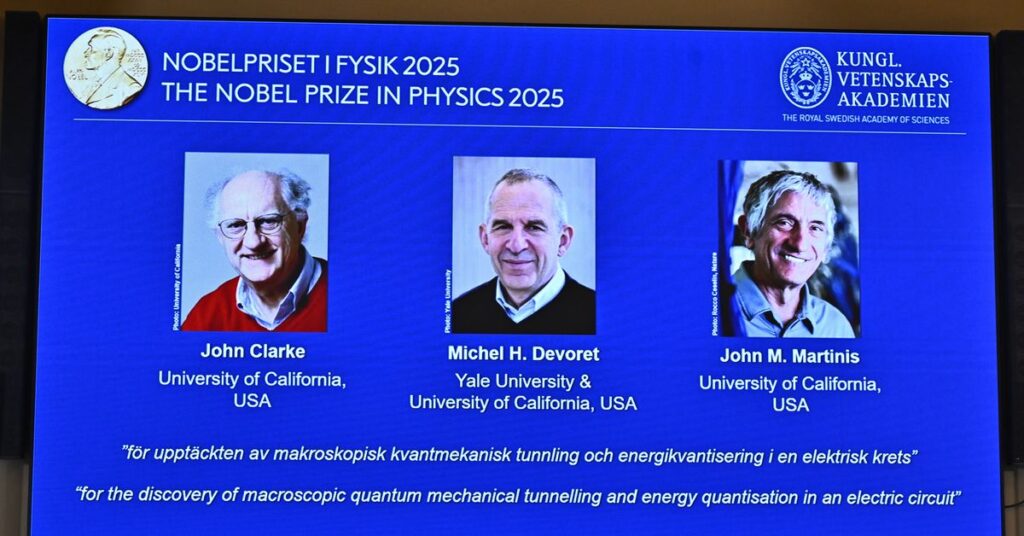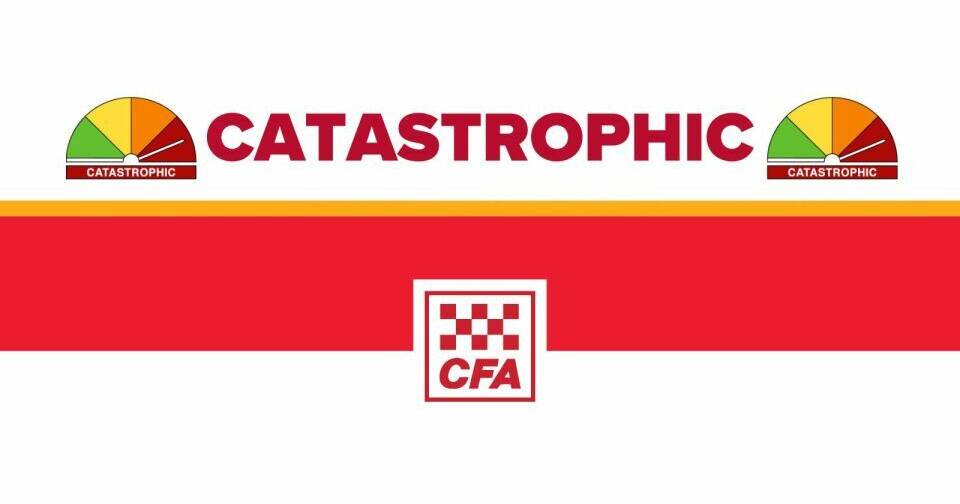
John Clarke, Michel H. Devoret, and John M. Martinis have been awarded the Nobel Prize in Physics for their groundbreaking work on quantum tunneling, a field that is significantly advancing digital technology. The announcement was made on Tuesday, highlighting the trio’s contributions to the burgeoning realm of quantum mechanics.
Clarke, aged 83, conducted his research at the University of California, Berkeley. Martinis worked at the University of California, Santa Barbara, while Devoret’s research was carried out at Yale and also at Santa Barbara. Upon receiving the news, Clarke expressed his astonishment, stating, “To put it mildly, it was the surprise of my life.” He praised his fellow laureates, noting that “their contributions are just overwhelming.”
The Impact of Quantum Tunneling
The Nobel committee emphasized that the laureates’ work from the 1980s continues to pave the way for the next generation of quantum technology, including advancements in quantum cryptography, quantum computing, and quantum sensors. Olle Eriksson, Chair of the Nobel Committee for Physics, remarked, “It is wonderful to be able to celebrate the way that century-old quantum mechanics continually offers new surprises. It is also enormously useful, as quantum mechanics is the foundation of all digital technology.”
Quantum mechanics, a field over 100 years old, explores the seemingly impossible subatomic world where particles can exist in multiple states simultaneously and tunnel through barriers. The work of Clarke, Devoret, and Martinis has been instrumental in translating these abstract concepts into practical applications, potentially revolutionizing computing and communications.
Expert Insights and Future Applications
Richard Fitzgerald, editor-in-chief of Physics Today, highlighted the significance of their work, stating, “What the three physicists did is taking the scale of something that we can’t see, we can’t touch, we can’t feel and bringing it up to the scale of something recognizable and make it something you can build upon.”
Mark Pearce, a professor of astrophysics and a member of the Nobel Physics Committee, elaborated on potential applications, noting that quantum computers are just one of many possibilities. “They’re also used for quantum sensors, which can make very sensitive measurements of, for example, magnetic fields, and perhaps also for cryptography, to encode information so it cannot be easily intercepted by a third party,” Pearce explained.
“Our discovery in some ways is the basis of quantum computing. Exactly at this moment where this fits in is not entirely clear to me,” Clarke admitted, underscoring the ongoing exploration in this field.
A Legacy of Innovation
This year marks the 119th awarding of the Nobel Prize in Physics. Last year’s laureates, John Hopfield and Geoffrey Hinton, were recognized for their pioneering work in artificial intelligence and machine learning. The Nobel Prize continues to honor those whose scientific endeavors push the boundaries of human knowledge.
The Nobel announcements will proceed with the chemistry prize on Wednesday and the literature prize on Thursday. The Nobel Peace Prize is set to be announced on Friday, followed by the Nobel Memorial Prize in Economic Sciences on October 13. The prestigious award ceremony will take place on December 10, commemorating the anniversary of Alfred Nobel’s death, the Swedish industrialist and inventor of dynamite who founded the prizes.
The prizes carry not only immense prestige but also a monetary award of 11 million Swedish kronor ($1.7 million).
As the world anticipates further announcements, the recognition of Clarke, Devoret, and Martinis serves as a testament to the transformative power of scientific inquiry and its potential to reshape our technological future.






